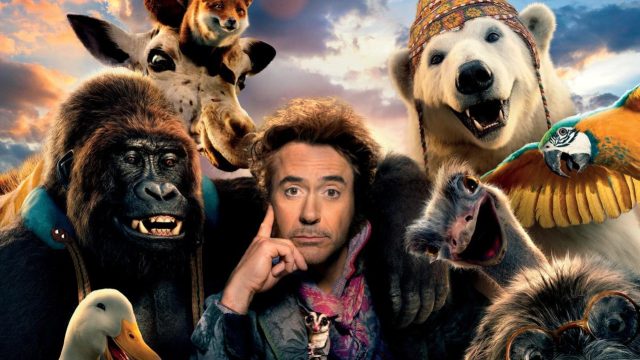The concept of talking to the animals is not exactly a new one. It features in some of the oldest recorded literature, going back thousands of years. Sometimes, the animal talks; sometimes, the hero somehow gains the power to talk to or at least understand animals. When the main character can speak to animals, it is often shown that the animals all speak one common language. When they don’t, no animal character speaks another animal language. You never get a dog who can talk to cats or a bird who has learned the language of goldfish. Also, all birds tend to speak the same language regardless of species.
The one I’ve always thought strangest, personally, is the one where all animals speak the same language. I’ve always felt this would make predator-prey relationships difficult. In this version, Our Hero somehow gains the ability to understand the speech of animals, and they’re all talking to one another all the time. This, to me, tends to feel as though the author hasn’t thought through the consequences. It seems unlikely to me that wolves would have any interest in talking to deer or eagles to rabbits. You’d get a bit of a Finding Nemo situation, where the sharks would attempt to stop eating other fish, because they understand that they are sentient beings capable of thoughts and feelings.
Slightly more believable are variants where one species communicates with humans or the hero can communicate with one species. Sure, it’s pro-dog propaganda that only dogs are sentient in Paw Patrol, but at least the dogs don’t speak to the chicken, an animal that, let’s be clear, they’d cheerfully eat if they weren’t sentient and didn’t know it was someone’s pet. When it’s only the hero who understands the animal, it can often be an entire classification, and it’s usually birds. The fun version of this is when Arthur Dent learns to speak the language of birds and discovers they’re not saying anything interesting.
Sometimes, you get a single talking animal, as in the Bible, or a distinction between talking animals and non-talking ones, as in the Bible’s fursona. This is usually intended to prove some sort of point, as the animal’s being able to see an angel or similar. Or, I suspect, because C. S. Lewis also realized the predator-prey issue. I could be wrong on this one. Sometimes, it’s because that specific animal is special and there’s no implication that any other animal is capable of speech.
So sure, it would be nice to understand my cat, if for no other reason than to figure out what he wants when he stands in the hallway whining. However, unlike in most fiction, the reality would be kind of boring. He wouldn’t be a great conversationalist, dispensing wisdom and wit. He’d inform me that his food dish was empty even when it wasn’t. He’d ask if I would let him out. I would tell him no. He’d ask again. Even when it’s the hero who talks to animals, they’re almost always capable of abstract thought. Which you’d think would mean they could learn a second language.
Help keep Mouse in cat food; consider supporting my Patreon or Ko-fi!

